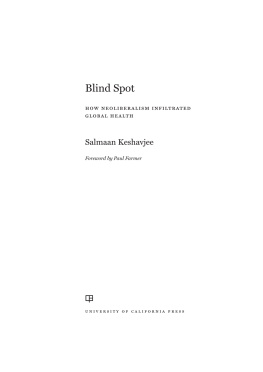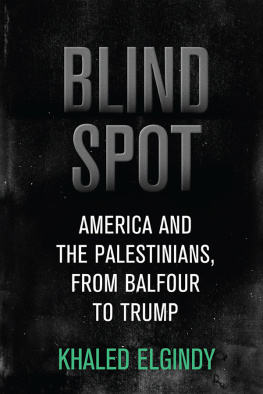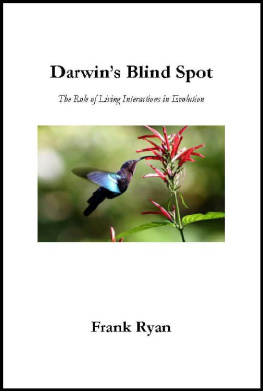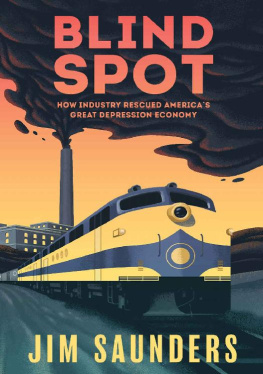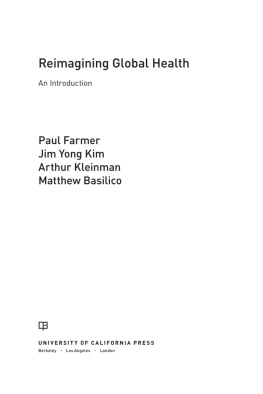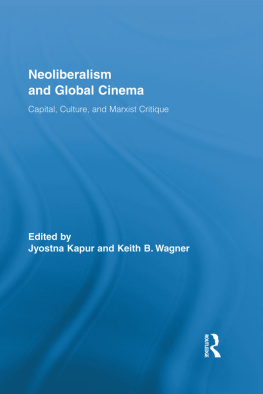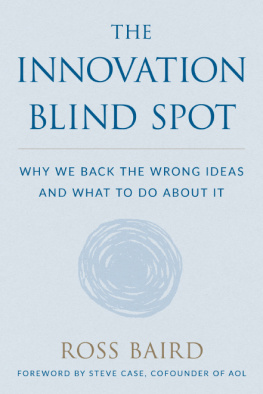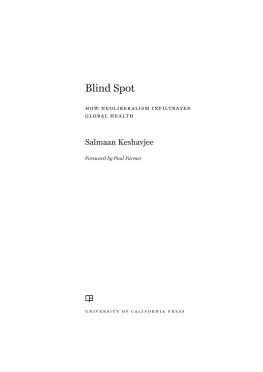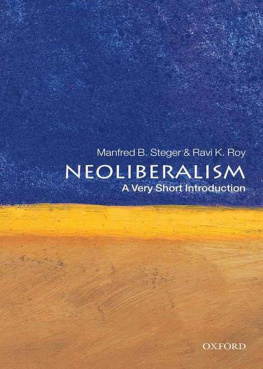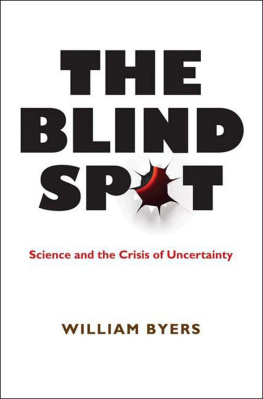Farmer Paul Edward - Blind spot: how neoliberalism infiltrated global health
Here you can read online Farmer Paul Edward - Blind spot: how neoliberalism infiltrated global health full text of the book (entire story) in english for free. Download pdf and epub, get meaning, cover and reviews about this ebook. City: Oakland;Tadżykistan, year: 2014, publisher: University of California Press, genre: Politics. Description of the work, (preface) as well as reviews are available. Best literature library LitArk.com created for fans of good reading and offers a wide selection of genres:
Romance novel
Science fiction
Adventure
Detective
Science
History
Home and family
Prose
Art
Politics
Computer
Non-fiction
Religion
Business
Children
Humor
Choose a favorite category and find really read worthwhile books. Enjoy immersion in the world of imagination, feel the emotions of the characters or learn something new for yourself, make an fascinating discovery.
- Book:Blind spot: how neoliberalism infiltrated global health
- Author:
- Publisher:University of California Press
- Genre:
- Year:2014
- City:Oakland;Tadżykistan
- Rating:4 / 5
- Favourites:Add to favourites
- Your mark:
- 80
- 1
- 2
- 3
- 4
- 5
Blind spot: how neoliberalism infiltrated global health: summary, description and annotation
We offer to read an annotation, description, summary or preface (depends on what the author of the book "Blind spot: how neoliberalism infiltrated global health" wrote himself). If you haven't found the necessary information about the book — write in the comments, we will try to find it.
Blind spot: how neoliberalism infiltrated global health — read online for free the complete book (whole text) full work
Below is the text of the book, divided by pages. System saving the place of the last page read, allows you to conveniently read the book "Blind spot: how neoliberalism infiltrated global health" online for free, without having to search again every time where you left off. Put a bookmark, and you can go to the page where you finished reading at any time.
Font size:
Interval:
Bookmark:


The California Series in Public Anthropology emphasizes the anthropologists role as an engaged intellectual. It continues anthropologys commitment to being an ethnographic witness, to describing, in human terms, how life is lived beyond the borders of many readers experiences. But it also adds a commitment, through ethnography, to reframing the terms of public debatetransforming received, accepted understandings of social issues with new insights, new framings.
Series Editor: Robert Borofsky (Hawaii Pacific University)
Contributing Editors: Philippe Bourgois (University of Pennsylvania), Paul Farmer (Partners In Health), Alex Hinton (Rutgers University), Carolyn Nordstrom (University of Notre Dame), and Nancy Scheper-Hughes (UC Berkeley)
University of California Press Editor: Naomi Schneider
Twice Dead: Organ Transplants and the Reinvention of Death, by Margaret Lock
Birthing the Nation: Strategies of Palestinian Women in Israel, by Rhoda Ann Kanaaneh (with a foreword by Hanan Ashrawi)
Annihilating Difference: The Anthropology of Genocide , edited by Alexander Laban Hinton (with a foreword by Kenneth Roth)
Pathologies of Power: Health, Human Rights, and the New War on the Poor, by Paul Farmer (with a foreword by Amartya Sen)
Buddha Is Hiding: Refugees, Citizenship, the New America, by Aihwa Ong
Chechnya: Life in a War-Torn Society, by Valery Tishkov (with a foreword by Mikhail S. Gorbachev)
Total Confinement: Madness and Reason in the Maximum Security Prison, by Lorna A. Rhodes
Paradise in Ashes: A Guatemalan Journey of Courage, Terror, and Hope, by Beatriz Manz (with a foreword by Aryeh Neier)
Laughter Out of Place: Race, Class, Violence, and Sexuality in a Rio Shantytown, by Donna M. Goldstein
Shadows of War: Violence, Power, and International Profiteering in the Twenty-First Century, by Carolyn Nordstrom
Why Did They Kill? Cambodia in the Shadow of Genocide, by Alexander Laban Hinton (with a foreword by Robert Jay Lifton)
Yanomami: The Fierce Controversy and What We Can Learn from It , by Robert Borofsky
Why Americas Top Pundits Are Wrong: Anthropologists Talk Back , edited by Catherine Besteman and Hugh Gusterson
Prisoners of Freedom: Human Rights and the African Poor , by Harri Englund
When Bodies Remember: Experiences and Politics of AIDS in South Africa , by Didier Fassin
Global Outlaws: Crime, Money, and Power in the Contemporary World , by Carolyn Nordstrom
Archaeology as Political Action, by Randall H. McGuire
Counting the Dead: The Culture and Politics of Human Rights Activism in Colombia , by Winifred Tate
Transforming Cape Town, by Catherine Besteman
Unimagined Community: Sex, Networks, and AIDS in Uganda and South Africa, by Robert J. Thornton
Righteous Dopefiend, by Philippe Bourgois and Jeff Schonberg
Democratic Insecurities: Violence, Trauma, and Intervention in Haiti, by Erica Caple James
Partner to the Poor: A Paul Farmer Reader, by Paul Farmer, edited by Haun Saussy (with a foreword by Tracy Kidder)
I Did It to Save My Life: Love and Survival in Sierra Leone, by Catherine E. Bolten
My Name Is Jody Williams: A Vermont Girls Winding Path to the Nobel Peace Prize, by Jody Williams
Reimagining Global Health: An Introduction, by Paul Farmer, Jim Yong Kim, Arthur Kleinman, and Matthew Basilico
Fresh Fruit, Broken Bodies: Migrant Farmworkers in the United States, by Seth M. Holmes, PhD, MD
Illegality, Inc.: Clandestine Migration and the Business of Bordering Europe, by Ruben Andersson
To Repair the World: Paul Farmer Speaks to the Next Generation, by Paul Farmer
Blind Spot: How Neoliberalism Infiltrated Global Health, by Salmaan Keshavjee (with a foreword by Paul Farmer)
Salmaan Keshavjee
Foreword by Paul Farmer

UNIVERSITY OF CALIFORNIA PRESS
University of California Press, one of the most distinguished university presses in the United States, enriches lives around the world by advancing scholarship in the humanities, social sciences, and natural sciences. Its activities are supported by the UC Press Foundation and by philanthropic contributions from individuals and institutions. For more information, visit www.ucpress.edu.
University of California Press
Oakland, California
2014 by The Regents of the University of California
Library of Congress Cataloging-in-Publication Data
Keshavjee, Salmaan, 1970 author.
Blind spot : how neoliberalism infiltrated global health / Salmaan Keshavjee ; foreword by Paul E. Farmer.
p. cm. (California series in public anthropology ; 30)
Includes bibliographical references and index.
ISBN 978-0-520-28283-4 (cloth : alk. paper)
ISBN 978-0-520-28284-1 (pbk. : alk. paper)
ISBN 978-0-520-95873-9 (ebook)
I. Title. II. Series: California series in public anthropology ; 30.
[DNLM: 1. Health ServiceseconomicsTajikistan. 2. Health PolicyTajikistan. 3. Health Services AdministrationeconomicsTajikistan. 4. OrganizationsTajikistan. 5. Socioeconomic FactorsTajikistan. 6. World HealthTajikistan. W 84 JT23]
RA395.A783
362.109586dc232014008620
Manufactured in the United States of America
23 22 21 20 19 18 17 16 15 14
10 9 8 7 6 5 4 3 2 1
In keeping with a commitment to support environmentally responsible and sustainable printing practices, UC Press has printed this book on Natures Natural, a fiber that contains 30% post-consumer waste and meets the minimum requirements of ANSI/NISO Z 39.481992 ( R 1997) ( Permanence of Paper ).
For my parents, Sherbanu and Ameer Keshavjee.
Born in apartheid South Africa, they brought us to a place that many in this world can only dream of and taught us to be courageous, persistent, and vigilant in the struggle for equity and justice.
The inner meaning of history ... involves speculation and an attempt to get at the truth, subtle explanation of the causes and origins of existing things, and deep knowledge of the how and why of events. History, therefore, is firmly rooted in philosophy.
Ibn Khaldun, fourteenth-century historian, The Muqaddimah
Fyodor Pavlovitch was drunk when he heard of his wifes death, and the story is that he ran out into the street and began shouting with joy, raising his hands to Heaven: Lord, now lettest Thou Thy servant depart in peace, but others say he wept without restraint like a little child, so much so that people were sorry for him, in spite of the repulsion he inspired. It is quite possible that both versions were true, that he rejoiced at his release, and at the same time wept for her who released him. As a general rule, people, even the wicked, are much more nave and simple-hearted than we suppose. And we ourselves are, too.
Fyodor Dostoyevsky, The Brothers Karamazov
Paul Farmer
Paul Farmer
It is rare that a scholarly work can be called soul-searching as well as wrenching, but Blind Spot, by physician-anthropologist Salmaan Keshavjee, is just such a book. Based on ethnographic research conducted after the collapse of the Soviet Union, in a remote and mountainous part of Central Asia at the margin of armed conflict, this is a haunting account of a goodwill effort to replace an inadequate public health system with a sustainable (and privatized) one. This new system is to be based, Keshavjee learns, on a post-Communist ideological framework even more impervious to course correction than the one preceding it. Lost in the battle between partisans of competing frameworks, one ascendant and one in the throes of collapse, are the poor and vulnerable and hungry who live in the Pamir Mountains, through which the storied Silk Road improbably winds.
Font size:
Interval:
Bookmark:
Similar books «Blind spot: how neoliberalism infiltrated global health»
Look at similar books to Blind spot: how neoliberalism infiltrated global health. We have selected literature similar in name and meaning in the hope of providing readers with more options to find new, interesting, not yet read works.
Discussion, reviews of the book Blind spot: how neoliberalism infiltrated global health and just readers' own opinions. Leave your comments, write what you think about the work, its meaning or the main characters. Specify what exactly you liked and what you didn't like, and why you think so.

